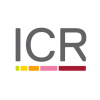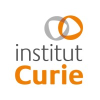Staff Scientist
Do you want to help us improve human health and understand life on Earth? Make your mark by shaping the future to enable or deliver life-changing science to solve some of humanity's greatest challenges.
About the Role:
Join the Trynka group as a Staff Scientist in Cellular Immunogenetics!
We are looking for a driven scientist to be part of the IMMERSE study, an Open Targets-funded project. In this role, you will leverage CRISPR technologies to uncover how disease-associated genes regulate immune cell function. This role is for a 12 month fixed term contract.
IMMERSE brings together expertise from Open Targets industry partners and four research groups (Trynka, Vento, Speak, and Soskic) each focused on an immune cell type, with an ambitious goal to uncover transcriptional programmes underpinning key immune cell functions. For this, we are generating large-scale transcriptional profiles for hundreds of gene perturbations to ultimately uncover disease biology and inform drug target discovery. Specifically, in our group we focus on the T cell arm.
If you have expertise in cellular immunology and/or CRISPR screens, and a desire to contribute to ambitious and collaborative research, we would love to hear from you.
You will be responsible for:
As a Staff Scientist you will coordinate and support the development and execution of experimental workflows of a collaborative project which aims to use CRISPR tools to link gene perturbations through transcriptional programmes to cell functions in primary immune cells, working closely with experts from academia and industry. Specifically, your focus will be in setting up CRISPR knock-out and activation protocols for perturbing CD8+ T cells and supporting parallel work in CD4+ cells.
The project provides a unique opportunity to advance immune disease research using the state-of-the-art facilities at the Sanger Institute in collaboration with our interdisciplinary Open Targets community.
Specific aspects of the role include:
- You will drive data-generation working with other members of the team. This will involve performing experiments yourself and also guiding others and coordinating efforts within the larger project team.
- You will work closely with computational staff scientist to analyse and interpret data and to present these data to the team, pharma partners and scientific community.
- You will remain at the forefront of new technologies and methods for CRISPR screening.
Why Join Us?
- Be at the forefront of immunogenomics research, developing innovative experimental workflows.
- Collaborate with world-leading experts from academia and industry in a highly dynamic, multidisciplinary environment.
- Contribute to an ambitious, large-scale collaborative project with therapeutic potential.
About Us:
Our group combines experimental and computational methods to understand gene regulation and function of the human immune system in health and disease. We are passionate about translational research and we work closely with Open Targets to advance our findings towards drug discovery pipelines.
We focus on dissecting the impact of genetic variants in the control of the immune system and what cellular effects underlie the variants that predispose individuals to immune-mediated diseases. We employ multimodal approaches such as single-cell transcriptomics, proteomics and high-content imaging coupled with phenotypic CRISPR screens to map gene regulation to cellular functions.
About Open Targets:
Open Targets is a public-private partnership involving the Wellcome Sanger Institute, a world-leading genomics institution, EMBL's European Bioinformatics Institute (EMBL-EBI), a global leader in the management, integration and analysis of public domain life science data, and world-leading pharmaceutical companies GSK, Sanofi, MSD, Pfizer, and Genentech
The Open Targets (OT) research programme generates and analyses data to connect targets to diseases, assess the strength of this evidence, and help identify and prioritise targets for drug discovery. This includes evidence that causally links targets and diseases, as well as foundational data that helps us understand biological processes and disease progression more deeply.'
About You:
Essential Skills:
- PhD in Cellular Biology, Molecular Biology or related discipline
- Research experience and technical skills in molecular and cellular biology
- Experience in human cell culture
- Significant experience working with large-scale genomic data generation.
- Experience with CRISPR screening.
- Experience with immune cell isolation, manipulation, activation and culture.
- Experience performing flow cytometry.
- Broad technical and scientific understanding of immunology, genetics and genomics.
- Ability to communicate ideas and results effectively
- Computer literate with experience in data analysis, visualisation and presentation
- Fluent in written and spoken English
- Proven track record of delivering complex experimental scientific projects
- Excellent prioritisation and time management skills, and ability to organise own workload
- Highly developed problem-solving skills
- Effective team player with strong interpersonal skills
- Evidence of ability to work effectively in an interdisciplinary environment.
- Have the highest ethical standards, and respect diversity and cultural differences in the institute
- Excellent communication skills to allow efficient interactions with internal and external collaborators.
- You will be expected to take a collaborative and pragmatic approach when planning the work schedules in order to prioritise effectively.
- Ability to effectively prioritise, multi-task and work independently.
Desired Skills:
- A proven track record of productivity and innovation in academia or industry
- Passion for translational research and advancing scientific discoveries to new therapies.
Other Information:
Salary per annum: £44,890-£53,331 (dependent upon skills and experience)
Application Process:
Please include your CV and a cover letter with your application describing how you meet the criteria for the role set out above.
Internal candidates:
This role would also be considered as a secondment opportunity. Please discuss with your current line manager ahead of submitting your application.
Closing Date: 8th April 2025
Hybrid Working at Wellcome Sanger:
We recognise that there are many benefits to Hybrid Working; including an improved work-life balance, with more focused time, as well as the ability to organise working time so that collaborative opportunities and team discussions are facilitated on campus. The hybrid working arrangement will vary for different roles and teams. The nature of your role and the type of work you do will determine if a hybrid working arrangement is possible.
Equality, Diversity and Inclusion:
We aim to attract, recruit, retain and develop talent from the widest possible talent pool, thereby gaining insight and access to different markets to generate a greater impact on the world. We have a supportive culture with the following staff networks, LGBTQ+, Parents and Carers, Disability and Race Equity to bring people together to share experiences, offer specific support and development opportunities and raise awareness. The networks are also a place for allies to provide support to others.
We want our people to be whoever they want to be because we believe people who bring their best selves to work, do their best work. That's why we're committed to creating a truly inclusive culture at Sanger Institute. We will consider all individuals without discrimination and are committed to creating an inclusive environment for all employees, where everyone can thrive.
Our Benefits:
We are proud to deliver an awarding campus-wide employee wellbeing strategy and programme. The importance of good health and adopting a healthier lifestyle and the commitment to reduce work-related stress is strongly acknowledged and recognised at Sanger Institute.
Sanger Institute became a signatory of the International Technician Commitment initiative In March 2018. The Technician Commitment aims to empower and ensure visibility, recognition, career development and sustainability for technicians working in higher education and research, across all disciplines.












